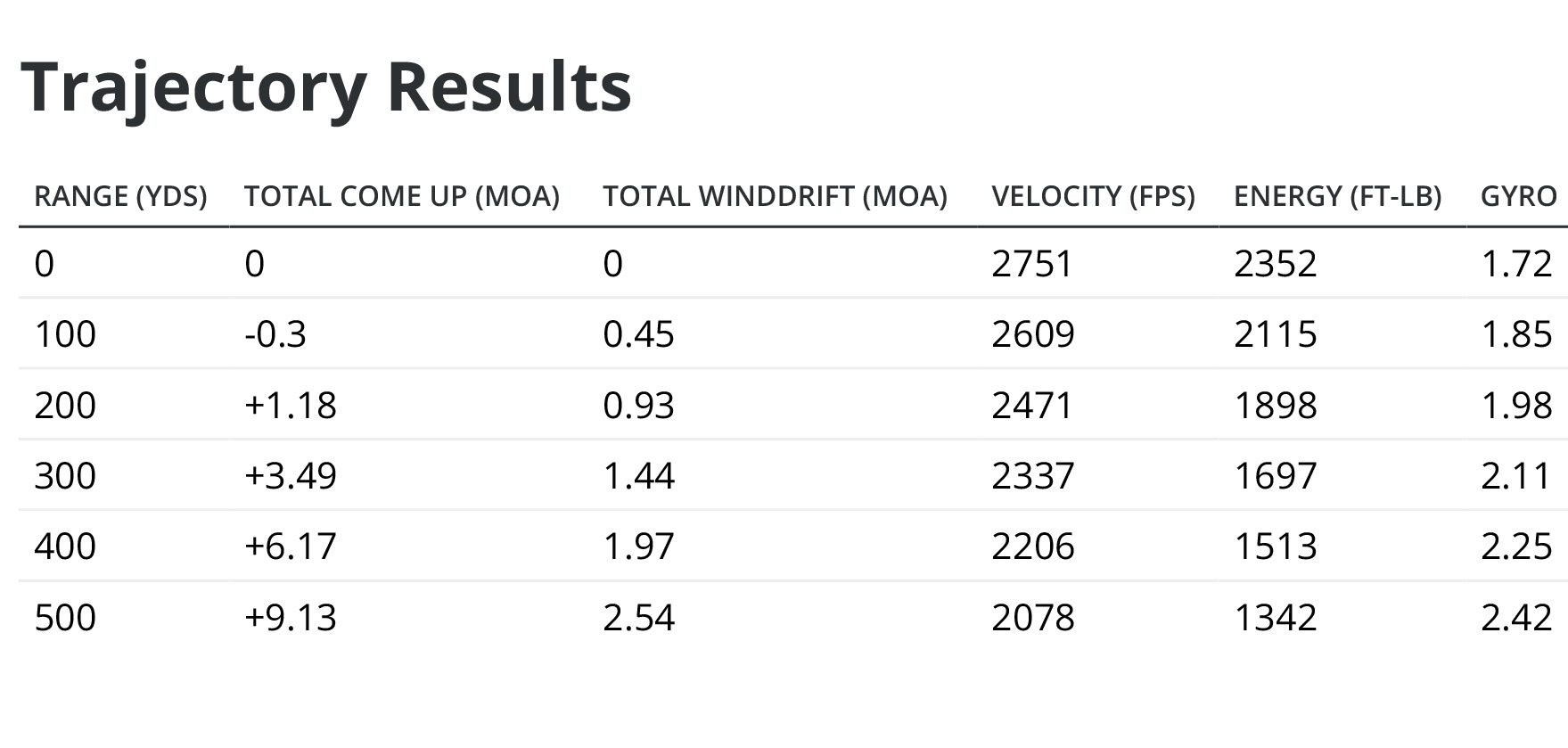The 6.5 Creedmoor is a cartridge of great debate. Mention it among different groups of shooters, grab some popcorn, and wait; someone is going to get triggered. However, mention the 6.5 PRC in a group of shooters and the response will be different. The 6.5 PRC is loved by hunters. I haven’t heard of any complaints about its performance even when it comes to elk. But what are the real differences between the 6.5 PRC vs 6.5 Creedmoor?
Let’s put the online forum smack talk aside for a moment and look at the objective differences between the two cartridges in terms of ballistics, accuracy, recoil, and rifle availability.
Intro to the 6.5 Creed
I still don’t understand the 6.5 Creed hate, but I’m not a reloader, and my hunting with it has been limited to antelope, mule, and whitetail deer. While I’ve had great success taking all the aforementioned game with the 6.5 Creedmoor, it has most of my adoration as a target cartridge. Launched in 2007 by Hornady, the Creed didn’t achieve true popularity until several years later. Read about the full history of the 6.5 Creedmoor here.
The 6.5 Creedmoor has a high ballistic coefficient thanks to its streamlined shape. It stays supersonic with a 140 gr. bullet, like Hornady’s ELD Match, beyond 1400 yards, which, in my type of shooting, carries weight. I’m primarily a target shooter, engaging steel targets at various distances to a mile and beyond. I compete in local PRS style matches a few times a year, and I’ve competed in ELR competition as well.
I’ve found that the 6.5 Creedmoor is a fun one-mile shooter as long as conditions aren’t too forbidding. On top of that the recoil is manageable, and may be considered light depending on what you’re used to. Add to that barrel life, which is typically beyond 4,500 rounds as long as you’re keeping the load to sane levels. Yes, the 6.5 Creedmoor has replaced the .308 as the do-all king as far as I’m concerned.
Intro to the 6.5 PRC
In 2018 Hornady introduced the 6.5 PRC. I was excited about the claimed and true 250 fps increase in velocity over the Creedmoor. I was in love before even shooting it but I wasn’t aware of the challenges it presented in the way of added recoil and decreased magazine capacity — you lose three rounds in an otherwise 10-round magazine. The increased velocity means more barrel wear too but the extra speed would allow me to run a shorter barrel and still have the ballistic performance I wanted for banging steel. I prefer shorter barrels mainly because I almost always shoot suppressed. Suppressed rifles can be quite long, and shorter barrels keep the overall length more manageable.
The factory load of 143 grains in the Hornady ELD-X gives you around 3,000 fps, and there are of course many other loads available as well. Long range competitive shooters have found a friend in the 6.5 PRC pushing heavier bullets like Hornady’s 153-grain A-TIPs. With standard factory loads like the 147 gr. ELD-M you can shoot a mile with relative ease. All this is done in a short action receiver. Read our full guide to the 6.5 PRC here.
Ballistics
As you can see below, the 6.5 PRC boasts 300 fps more than that of a 6.5 Creedmoor and it does this, at least in match bullet trim, with a 147 gr. ELDM while the Creedmoor pushes the 140 gr. ELDM. This is apparent in the chart showing both barrels 24 inches in length.
6.5 Creedmoor 140 gr. ELDM 24” Barrel
6.5 PRC 147 gr. ELDM 24” Barrel
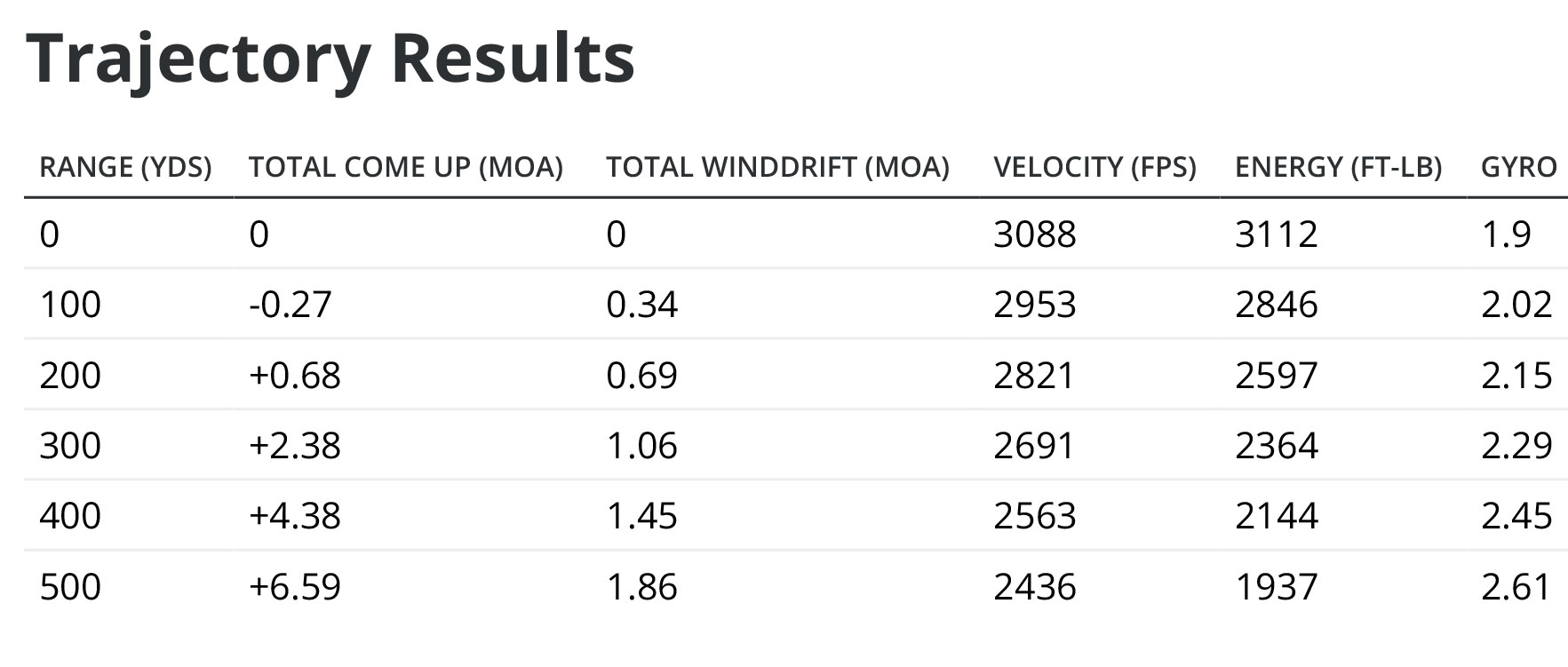
Things change significantly when the PRC barrel is a 20-inch although the match load is still nearly 100 fps faster. But the hunting loads take a big hit, with velocities nearly the same as the 24-inch Creedmoor barrel. This being the case, energy on target will be the same. In other words, the 20-inch PRC is no more effective than the 6.5 Creedmoor. Yes, you benefit from a shorter rifle, but you also gain more recoil.
6.5 PRC 143 gr. ELDX 20” Barrel
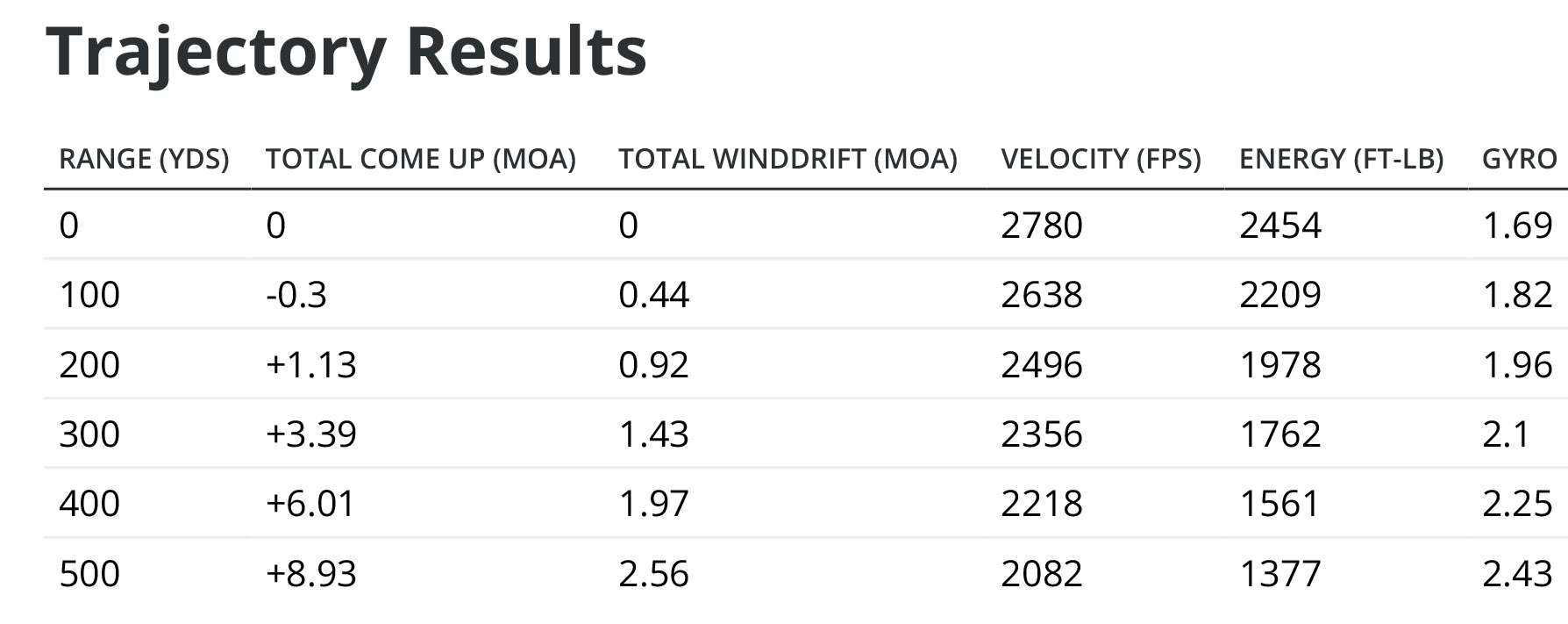
6.5 Creedmoor 143 gr. ELDX 24” Barrel
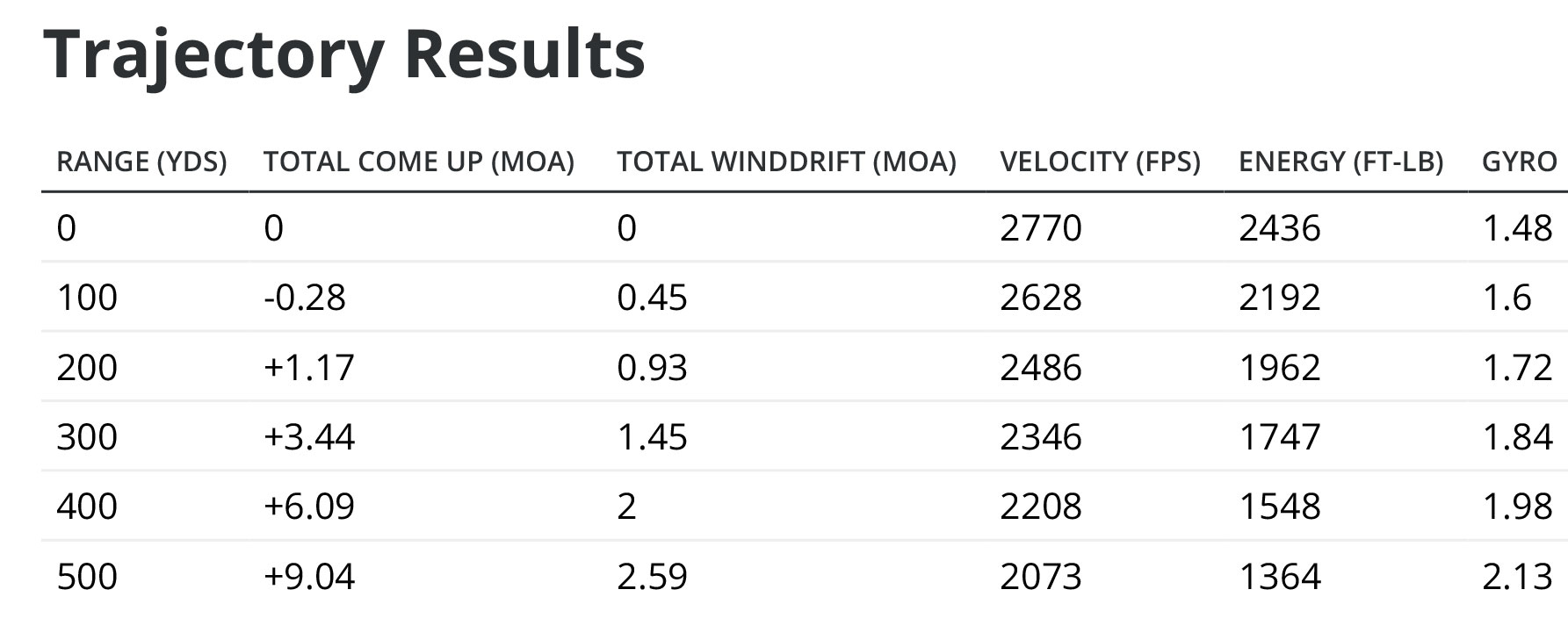
Accuracy
Few things are more satisfying in precision shooting than punching tiny groups at 100 yards. It’s even more satisfying when you can do that with a “hunting” rifle as well. Overall the 6.5 Creedmoor is extremely precise and it’s rare that I test a rifle chambered in 6.5 Creedmoor that doesn’t shoot sub-MOA, five-shot groups with specific ammo. If the build is solid, whether factory or custom, and it has a good 1:8 twist barrel, it will more than likely shoot Hornady’s 140 gr. ELD-M load well. If your 6.5 Creedmoor won’t shoot the 140 gr. ELD Match, there is likely something wrong with your rifle.
I’ve had good luck with the 6.5 PRC as well. At this point, I may sound like a broken record, but Hornady’s 147 gr. ELD Match load has always been a precise round and let’s not forget that it was the only one available for some time.
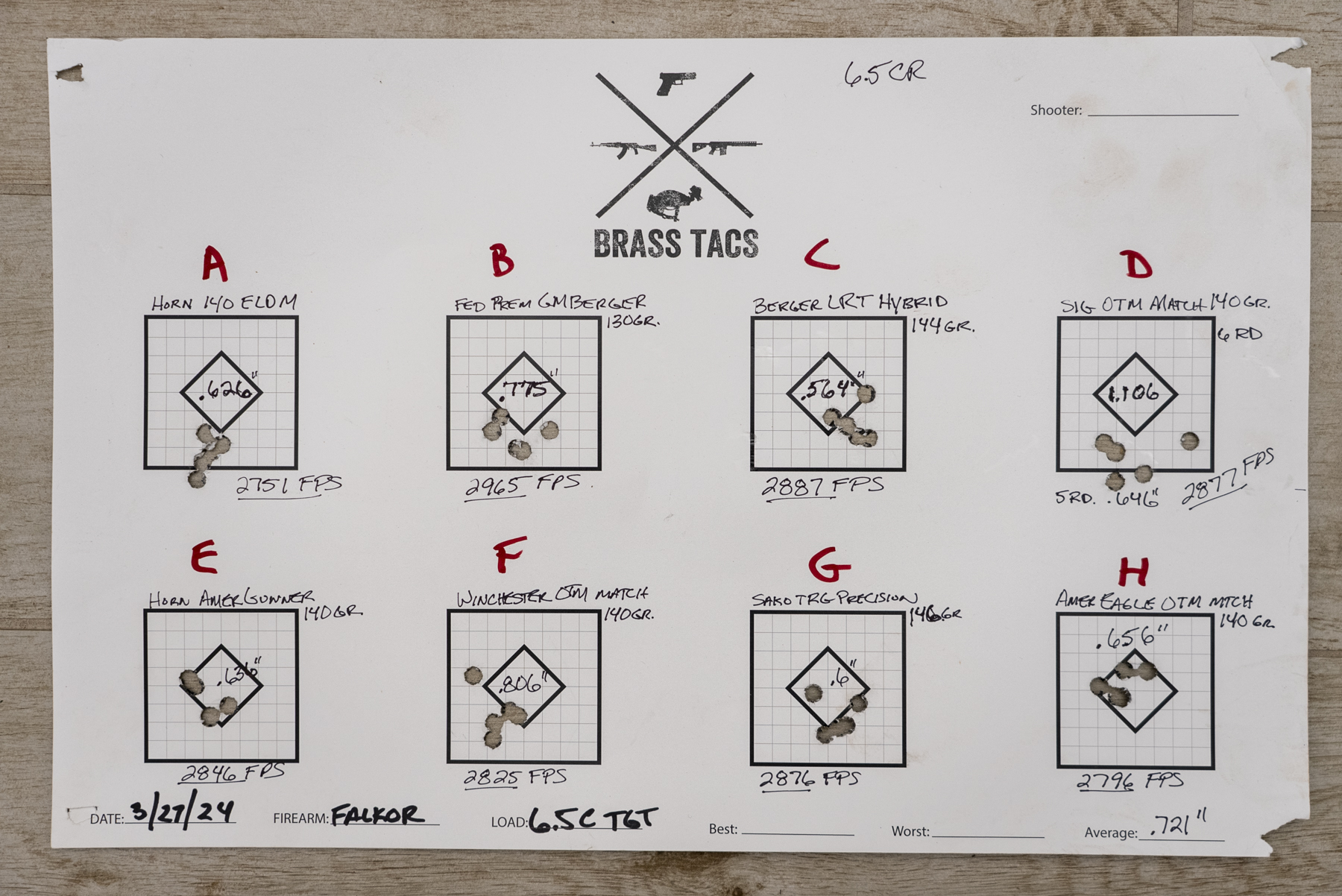
Sean Utley
Felt Recoil
As you likely already know, the 6.5 PRC is a magnum cartridge, based off of the .375 Ruger with a .532” case head and it requires a .540 bolt face. Yes it’s still short action but brings with it a considerable amount of recoil. Don’t let the 6.5 part fool you. If I had to compare the recoil of a 6.5 PRC to anything, it would be a little stouter than a .308 Winchester, depending on the rifle weights and bullet weights, of course. No, it’s not unbearable recoil, but if your shooting requires spotting your own misses and impacts, it’s enough to change the outcome.
The 6.5 Creedmoor is mild recoiling, and in my shoulder estimation, 20 percent less than a .308. If you have a muzzle brake or suppressor on your rig, the 6.5 Creedmoor makes for a great companion for just about any shooting you want to do. The minimal recoil coupled with the ballistics are two of the reasons why the 6.5 Creedmoor is a no-brainer for a rifle purchase.
To put basic numbers to this, an 8-pound rifle in 6.5 PRC generates 18.6 f-p of recoil and the 6.5 Creed generates 14.9 f-p in recoil, both firing 143-grain bullets. For reference, an 8-pound .308 Win. firing a 180-grain bullet generates about 17.5 f-p in recoil.
Rifle Availability
Acquiring a good quality factory rifle in either chambering isn’t much of a challenge. In fact the options are nearly endless if you want a factory target rifle chambered in 6.5 Creedmoor, or a hunting rifle chambered in either 6.5 Creedmoor or 6.5 PRC. You name the manufacturer and they likely have a target focused Creedmoor and a lightweight hunting variant. One only needs to do a quick online search to uncover a plethora of offerings.
We are in the glory days of rifles. Rifle actions and barrel choices are plentiful if you want to build your own. Many shooters are opting for barreled actions and buying their own stock or chassis, bolting them together and creating a “personalized” rifle as opposed to a traditional custom build. In fact the rifle that I used for reviewing both the 6.5 Creedmoor and 6.5 PRC hunting loads was the same Falkor MT-7 action, fitted with different Proof Research prefit barrels. I simply torqued off the 6.5 Creedmoor barrel, and torqued on the 6.5 PRC, and replaced the bolt (I ordered two bolts with the Falkor action). The results speak for themselves when you look at my results. If I can do this, anyone can.
I should also mention the difference in magazines if you opt for a detachable magazine for your rifle. You’ll need to use a .300 WSM magazine for the 6.5 PRC, while the 6.5 Creedmoor utilizes an AICS magazine unless the rifle requires a proprietary type magazine.
Read Next: Best 6.5 Creedmoor Rifles
Shooting the 6.5 PRC vs 6.5 Creedmoor
Years ago, after having a 6.5 Creedmoor built with a barrel from a benchrest-focused manufacturer, I shot groups using seven different factory loads (one five-shot group per load, per rifle). While I can’t find the target (this was some time in 2017), I remember specifically that the overall group size average was sub .6 inches. So I set out to try that quick spot check again using a target-focused rifle and a lighter, hunting-focused rifle, for each chambering, for a total of four different rifle setups.
My approach was quite simple and straightforward. I fired one five-shot group of each type of ammunition through each rifle, utilizing the target loads in the target rifles, and the hunting loads in the hunting rifles. The one exception to this was an additional five-shot group shot through the shorter barrel of the hunting PRC using the 147 gr. ELD-M target load. I did this because I wanted to know how much slower the heavy target load would be from the shorter barrel. Velocities were collected for each load using the excellent Garmin Xero chrono.
Target Rifle 1
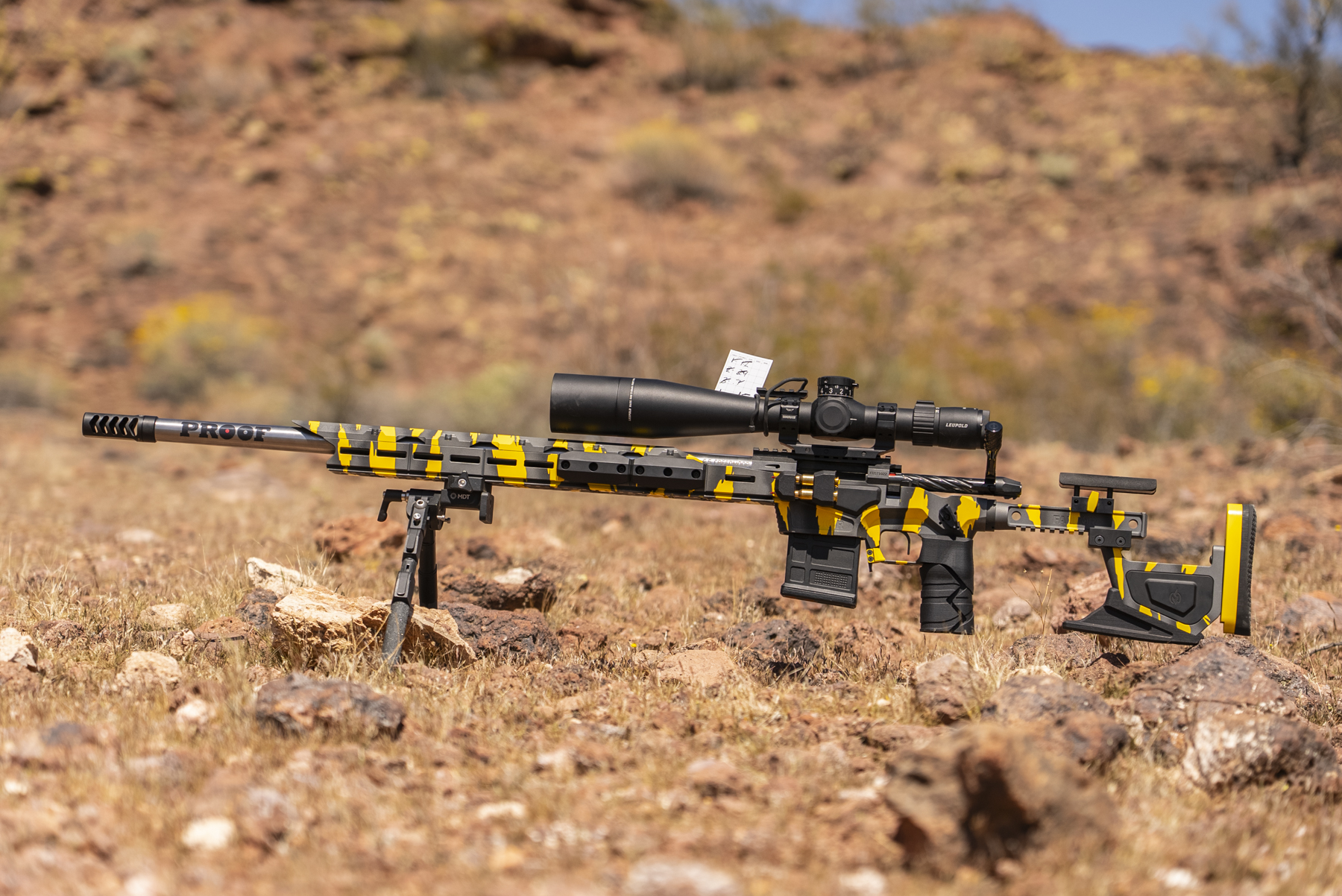
Sean Utley
6.5 Creedmoor, Falkor Seven action, Falkor Chassis, Proof SS Competition Profile barrel (1:8), Timney Trigger, Leupold MK5HD 7-37x56mm, MDT Ckyepod, 23 lbs.
Target Rifle 2
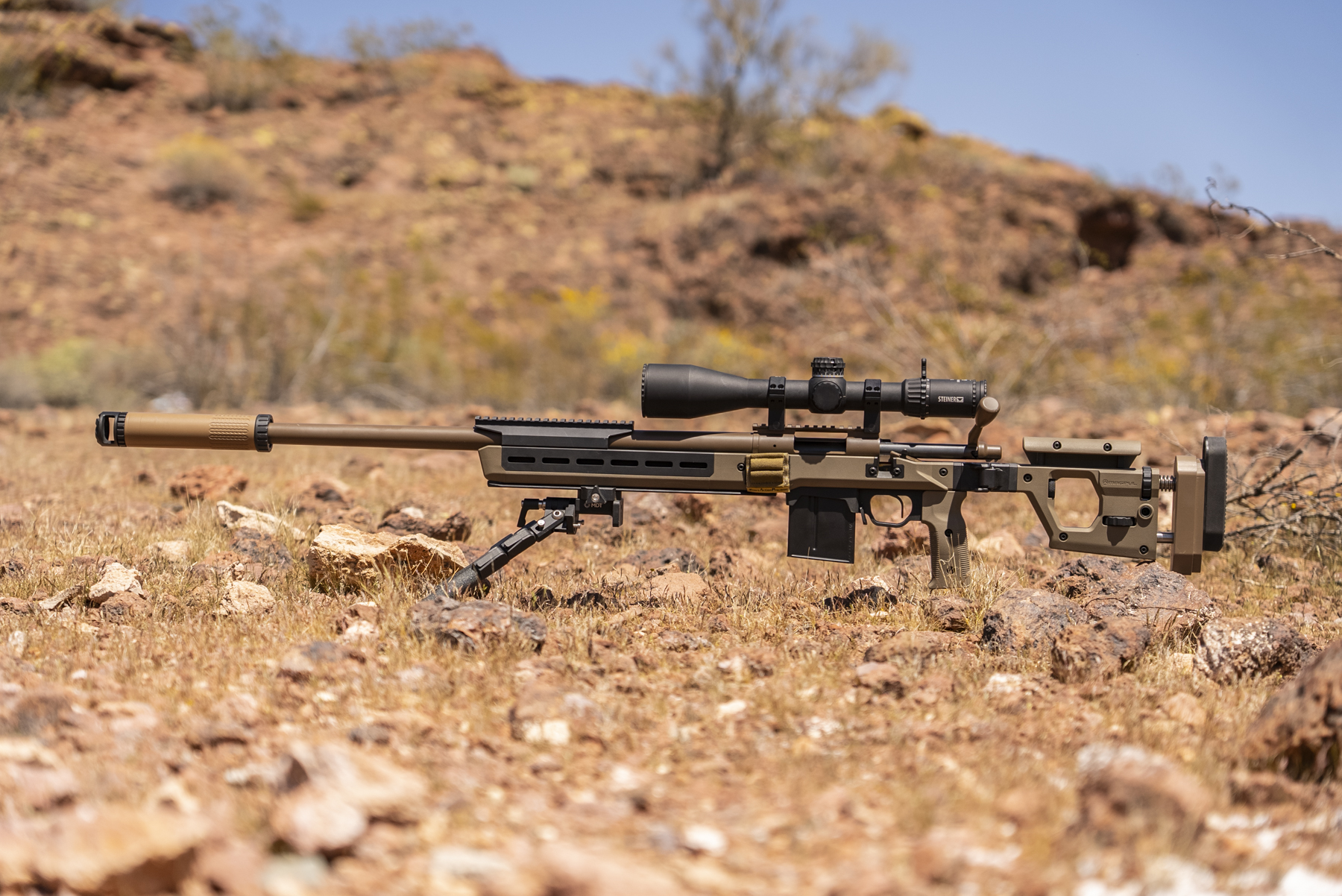
Sean Utley
6.5 PRC, trued Remington 700 action, Hawk Hill Custom MTU profile barrel (1:7.5), Timney Trigger, Steiner T6xi 5-30×56, MDT Ckyepod, 20 lbs.
Hunting Rifle 1
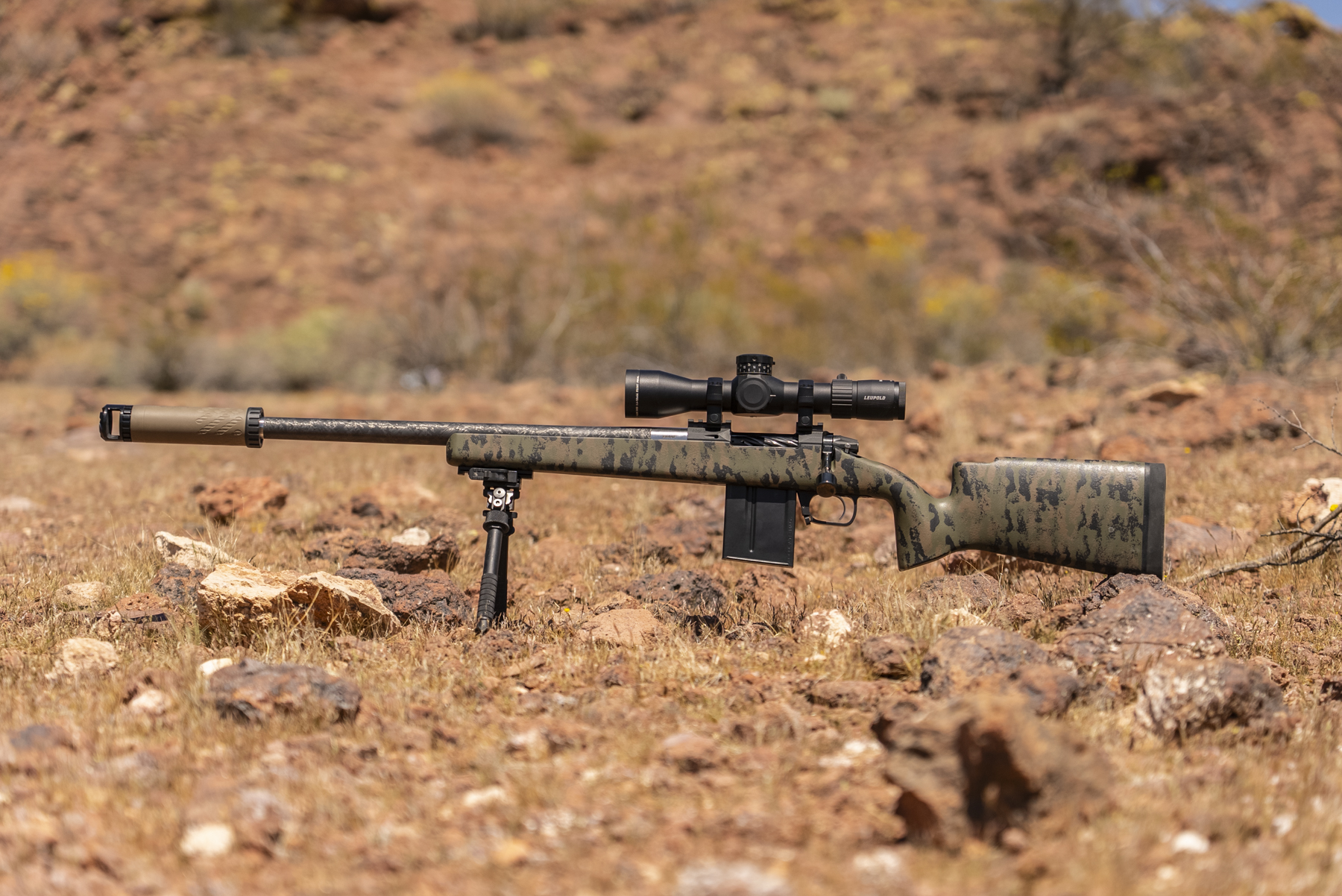
Sean Utley
6.5 Creedmoor, Falkor MT-7 action, AG Composite AG Hunter fiberglass stock (no bedding), Proof Prefit 24” Sendero profile barrel (1:8), Trigger Tech Trigger, Leupold MK5HS 3-18x44mm, Atlas bipod, Elite Iron Asset Lite suppressor, 11lb flat.
Hunting Rifle 2
Same as hunting rifle 1, swapped out prefit barrel, bolt, and magazine for 6.5 PRC chambering.
These rifles are at the opposite ends of the rifle spectrum especially when you factor in target ammo versus hunting ammo, but I was actually quite surprised by the results. With eight different Creedmoor factory loads shot through the target rifle, and six different loads shot through the hunting rifle, the numbers weren’t too far apart. Average group size of all the target load groups was .712 inches while the hunting load group was 1.02 inches. Had I stopped at six loads with the target rifle, the results would have been even closer.
I should also note that I shot the target rifle at 30x magnification (way too much magnification) on the optic while I maxed out the hunter’s optic at 18x with similar broken reticles. Point of impact didn’t shift much either, and I maintained the same point of aim at the bottom tip of the diamond on each target.
6.5 PRC results were a little more surprising. Unfortunately I only had one target load, the 147 gr. ELD-M from Hornady. It managed a .527-inch five-round group. The hunting rifle, with four different loads averaged .70 inches with a best of .65 inches from Hornady’s Outfitter 130 grain CX. That’s just insane to me. A barrel I threaded on the night before, after shooting the 6.5 Creedmoor, turned around and averaged sub 3/4 MOA. No custom work. No handloading, fiberglass stock, with no bedding. The 20-inch CF barrel did give up velocity though, with roughly a 250 fps drop in average velocity. With four inches less barrel, the 6.5 PRC is basically a 6.5 Creedmoor with more recoil.
Final Thoughts on the 6.5 PRC vs 6.5 Creedmoor
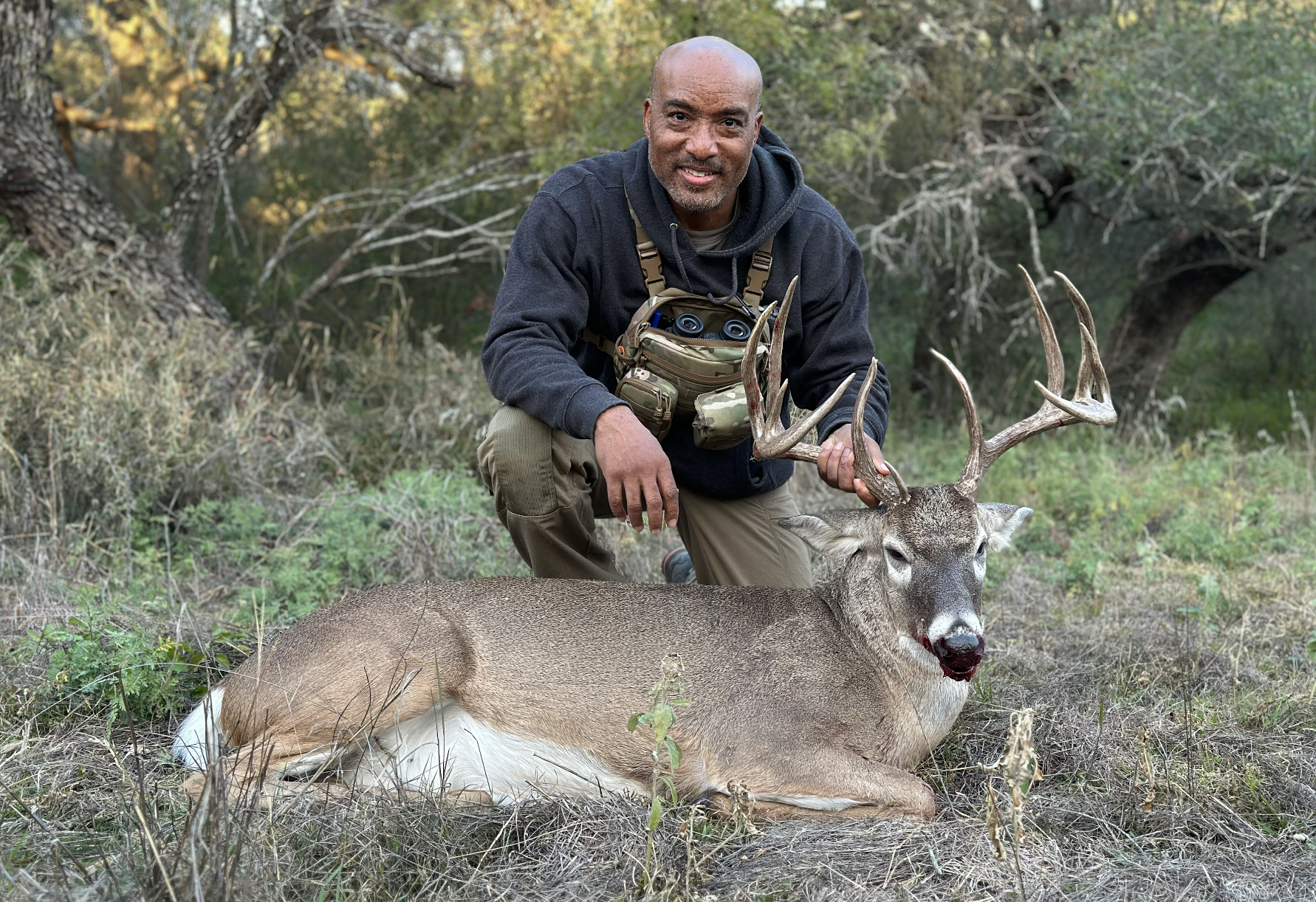
Sean Utley
The .264 is a great and proven caliber. Like anything else it has its performance limitations. For target shooting in either chambering, it is accurate and quite precise. Recoil becomes a factor with the 6.5 PRC and only in lightweight rifles.
For hunting purposes, higher velocities should be maintained for effectiveness regardless of which chambering you choose. The benefit of the PRC is that you can run shorter rifles, thus keeping the overall length more manageable even while suppressed. This is a big deal for many hunters. If that’s your goal, you may want to limit your game to specific sizes, and be more conservative with your shooting distances. In the end, shot placement is king. Practice accordingly.
Read the full article here

